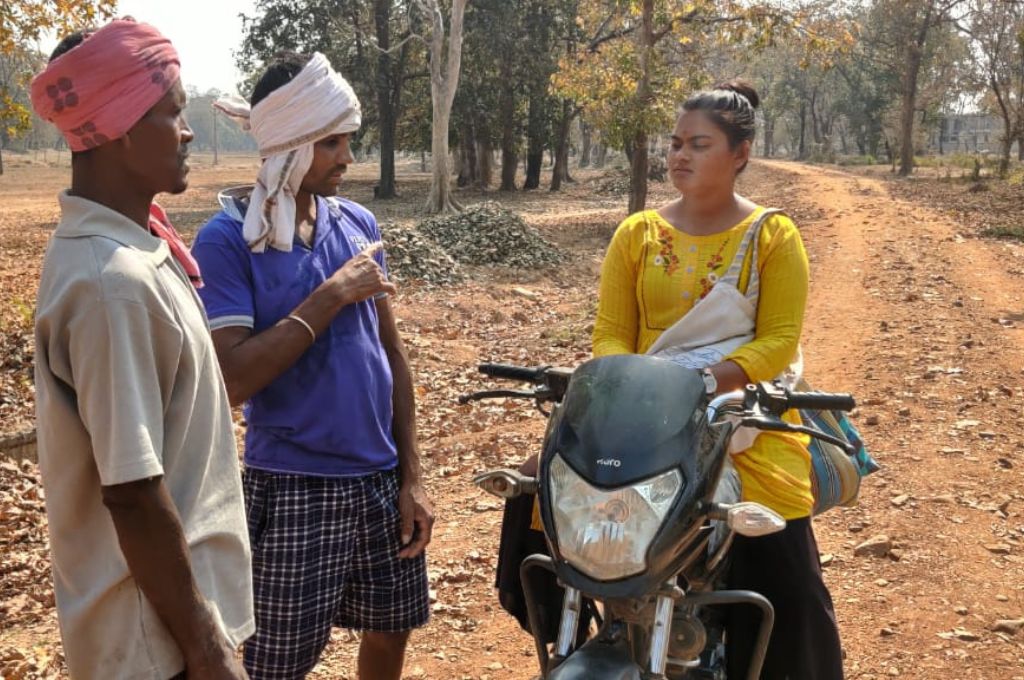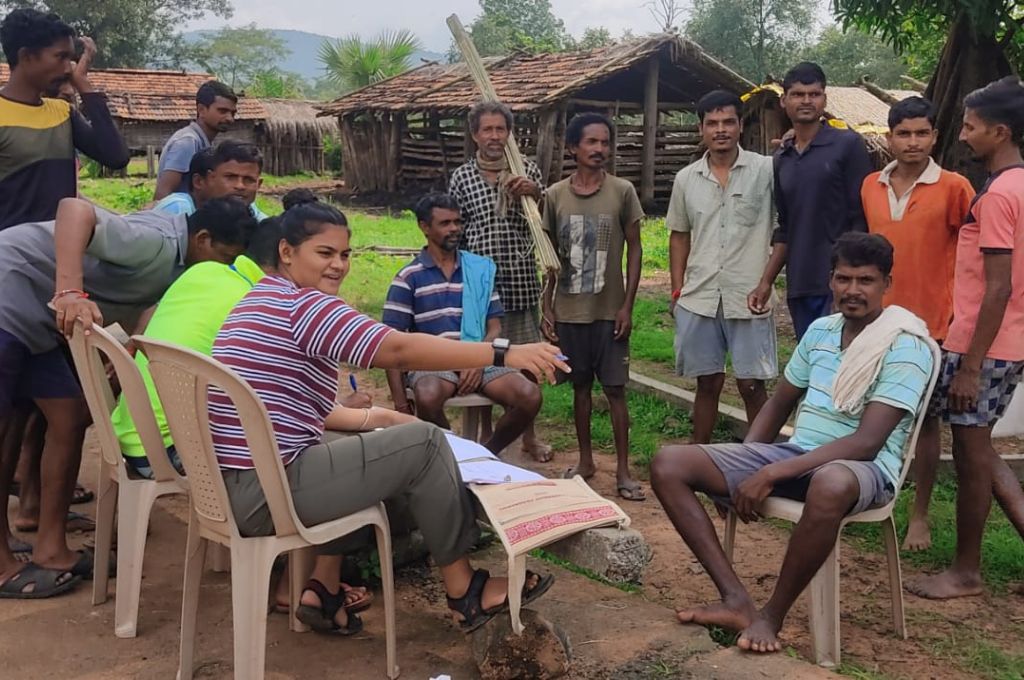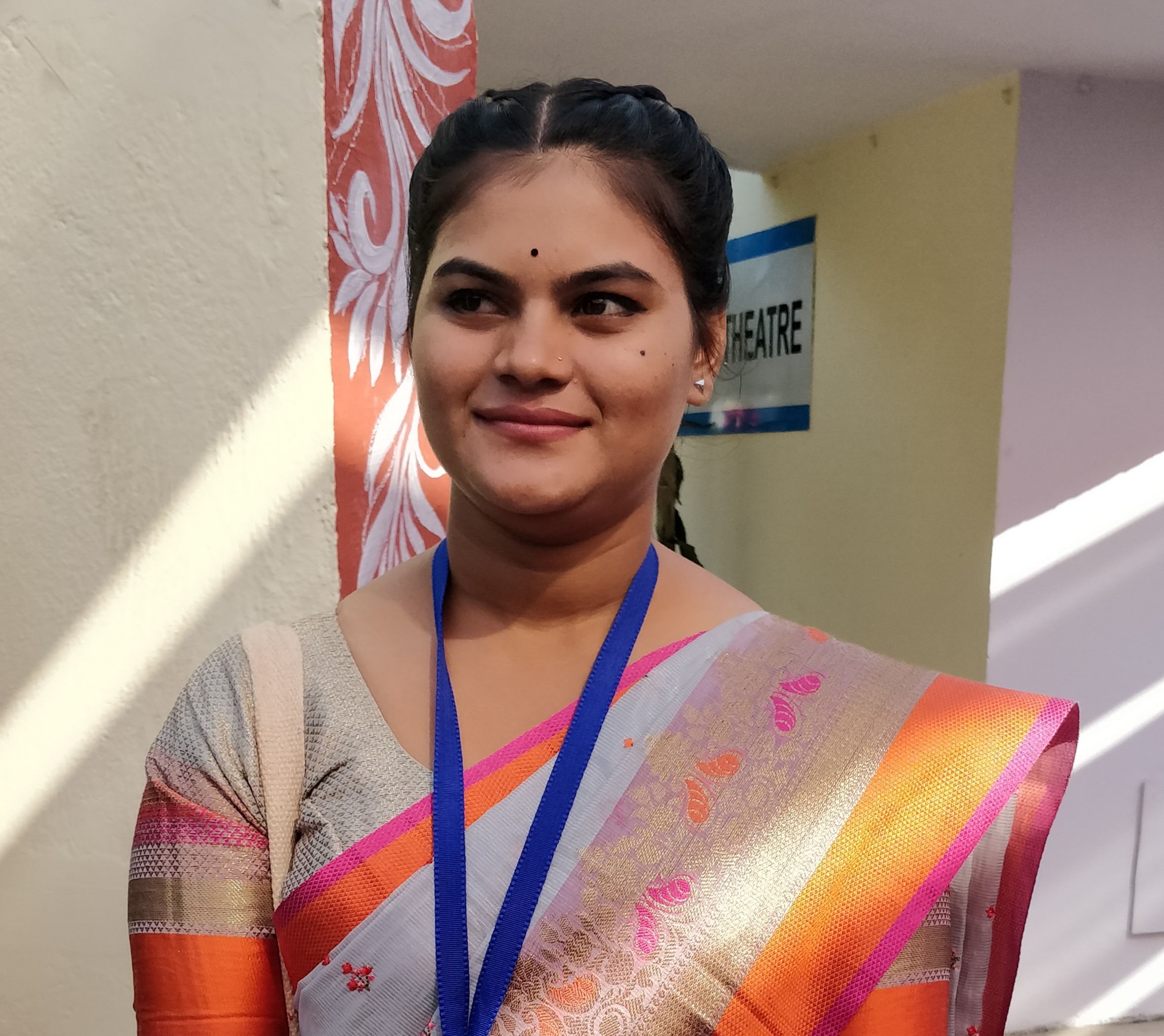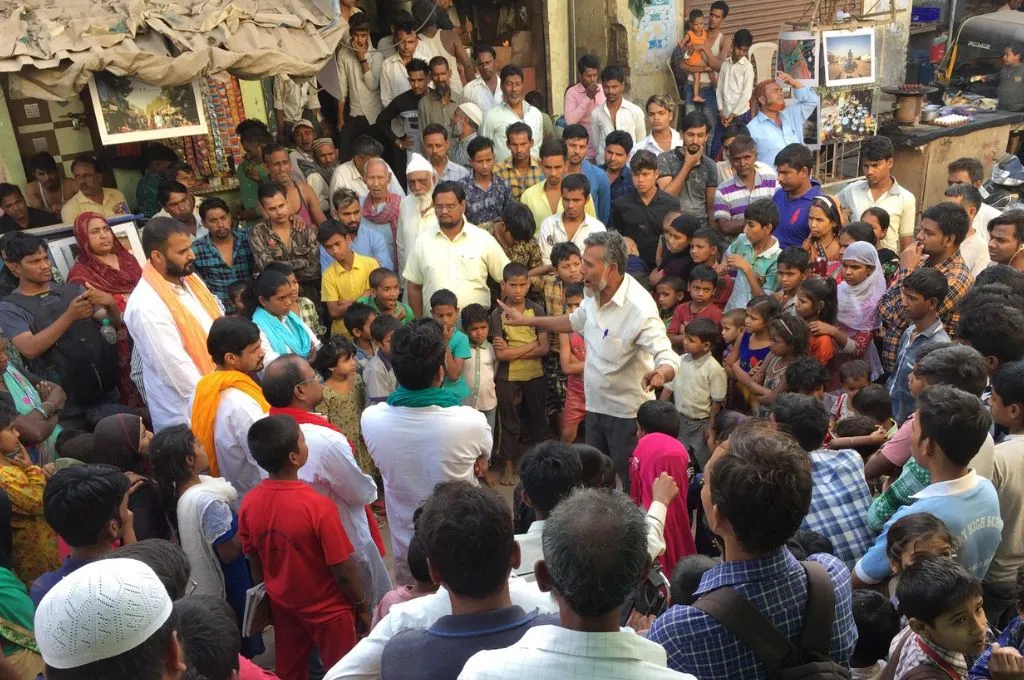I am an Adivasi woman and, for the past three years, the sarpanch in Tehsil Bhamragarh, Maharashtra. Being a 23-year-old woman responsible for nine villages in Gadchiroli district, an area associated with Naxal unrest, certainly makes my job challenging. However, what makes it worthwhile is that I’ve always received nothing but love and respect from my community of Madia tribals.
Growing up in Kothi gram panchayat, I was athletic and played cricket, volleyball, and kabaddi with the boys. I was often the only woman in a large group of men. I rode a motorbike, had short hair, and dressed in pants and shirt, but was openly accepted by everyone.
As my father is a tehsil-level teacher and my mother taught in the anganwadi, people from all over the area come to us for help with paperwork. The rate of literacy is not high, and most residents can’t cope with official documents. After completing standard 12 at Shivaji Madhyamik Ashram school in Chandrapur, I too started helping with this paperwork—updating passbooks, depositing and withdrawing money, filling out forms for caste certificates, land documentation, and more.
Kothi gram panchayat had not had a sarpanch since 2003. This led to the community facing a lot of hardship. Government administrative officers took charge of village projects, but the toilets, schools, and roads existed only on paper or were of bad quality. Corrupt officials would cheat us of basic facilities. The tehsil office was 25 kilometres away. After hours of travel, when we would make it there with our documents—for caste, domicile, or land—we would be turned away or asked to return on another day. We desperately needed a sarpanch who could act as the go-between.
We also needed someone to fight for our needs. We are often treated disrespectfully. Officials talk down to us about our clothes, our food, our way of living, and allege that we’re all Naxalites. Male members of our community are often harassed by the cops on suspicion of Naxal links. When the land is ours, why are we treated so badly in our own home?
So, in 2019, I traded my dreams for the hopes of my community. I had been enrolled in college for barely six months, for a bachelor’s degree in physical education, when I was unanimously selected as the sarpanch at the gram sabha. I had trained as a boxer and volleyball player and my ambition was to be a sports teacher. Although I took some time to make up my mind, I have never looked back. The day I filled my form for the post of sarpanch as an independent and the only candidate is the most memorable day of my life. I was surrounded by people from nine villages, a woman among many men.
I spend almost all my time meeting people from these villages—a population of 2,298.

6.00 AM: Sometimes when I wake up, visitors are already waiting for me at home. They come for help with paperwork—birth registration, death registration, land papers, etc. Instead of sending people on the long trek to the taluka office, I help them with the technicalities, call the taluka office, and coordinate with the online operators or send the paperwork with the peon. People also come to give me updates about anything that needs my attention. Sarpanches usually enjoy a lot of social standing, but I prefer not to throw my weight around and make it a point to sit on the ground with everyone else.
8.00 AM: After meeting visitors and preparing breakfast for my parents, with whom I live, I set out for the villages on my Bullet (bike). To reach three of them, I need to take the boat. The commute gets difficult during rains. But I make it a point to visit at least one or two villages daily. Connectivity and network are big challenges here and meeting people in person is the best way to stay abreast of all the issues. Each village is about five to eight kilometres away from mine, which is the only one with some connectivity, although that too is usually patchy.
Apart from helping with documents, I hold discussions at the gotul (a youth dormitory and a place commonly used for gatherings) on important issues, such as electricity, education, medical facilities, and toilets. I share information about government schemes that could benefit us. I also distribute sanitary pads and host group discussions on the taboos around menstruation.
Five of our villages don’t have electricity even though the poles have been set up. The government won’t give us electricity until residents agree to set up meters. And residents are apprehensive because they have heard of villages where people are charged for having meters even though they don’t have electricity.
Where there are teachers, there are no resources, and the teaching methods are ineffective.
Education is also a challenge. There are four schools in the nine villages that I serve, and three of them enroll students only till standard 4. There is one ashram (a residential school) that provides education up to standard 10. Some schools don’t have teachers. Where there are teachers, there are no resources, and the teaching methods are ineffective. There is another ashram school in Chandrapur that admits students up to standard 12. I try to get all the children from our villages enrolled there. While we want to retain our cultural identity, without education we cannot understand the rights given to us by the Constitution and fight for them.

1.00 PM: On most days, I’m in one of the villages during lunchtime and the villagers insist I stay back to eat at their homes. This way, we can continue working for longer.
However, my days frequently take an unpredictable turn. From showing women a video on menstrual hygiene, I may have to suddenly switch to ferrying a patient on my motorcycle to a hospital many kilometres away. When we have a health emergency, we can’t contact an ambulance because of network issues. Even if we do, the ambulance takes hours to reach us.
One tragedy is forever etched in my mind. A six-year-old child was playing outside and got a nosebleed. We took him to the health subcentre but they didn’t have a suction machine to help him breathe. We called the ambulance but were told that it would take hours to arrive. So, we rode our two-wheelers to the nearest hospital. I had the child with me on my Bullet, and my heart broke when he passed away on the journey itself before we could get him emergency care.
One other time, a few of my friends had gathered at my house to celebrate a birthday. Before we could start, my friend who is a nurse got a call about a childbirth complication. We headed to that village and discovered that the pregnant woman was in distress and could barely stay awake. The infant was stuck but we didn’t have the equipment to help. I used a pair of gloves to pull the baby out. But then the child wouldn’t breathe. We were in so much anguish that I remember crying. I had previously enrolled for a first-aid course and so I tried mouth-to-mouth resuscitation, and that worked. Within a few hours, the torment of a near-death situation was replaced by the joy of a birth.
I insist on speaking plainly about our rights and the rules that officials need to follow.
Another unusual day that I remember well is when we protested police harassment with a rally. The film Jai Bhim accurately depicts how the police target Adivasi men under the guise of fighting Naxalism. When men from our community go into forests to forage for food or firewood, the officials capture them and compel them to wear certain uniforms and run so they can stage an encounter killing. Innocent Adivasis are invited to photo sessions on the pretext of launching/availing government schemes and then those pictures are used to frame them. This harassment is still going on. I’m not scared of the cops. I insist on speaking plainly about our rights and the rules that officials need to follow. In fact, to make my point I have a tattoo that reads ‘comrade’. After all, the word stands for someone who works for others, a friend. Why is it so reviled? Men here are scared to even whisper the word.
On days when something urgent doesn’t require my attention, I work on documents at the gram panchayat office.
6.00 PM: This is when I usually return home. However, even if I am delayed, my parents don’t worry. They have stopped calling to check on me, as they’re confident that I can manage no matter what situation I find myself in. Often there is somebody waiting for me, and after meeting them I have an early dinner with my parents. Then I go back to more meetings and discussions.
My life can be hectic and I have to multitask. I also take care of my parents. I do get tired, but it is fulfilling to do something for my community. Balancing everything has taken a toll on my education, and boxing and volleyball practice are on the back burner for now. I have somehow managed to complete my graduation and have enrolled for a postgraduate degree. I have special permission from my principal to study remotely and visit the college—Rashtriya Sharirik Shikshan Mahavidyalay in Visapur—for practicals. In the past year, I also attended the Tribal Leadership Programme where I learned a lot from the experience of other Adivasi leaders.
1.00 AM: Yes, I sleep late, and not enough. After a long day, I like to unwind by watching movies late into the night. I enjoy South Indian films where I get to see the tactics used by local politicians and learn from them.
As told to IDR.






